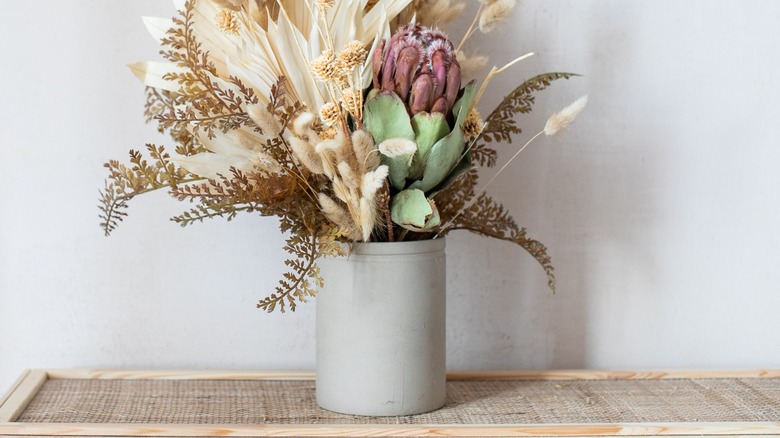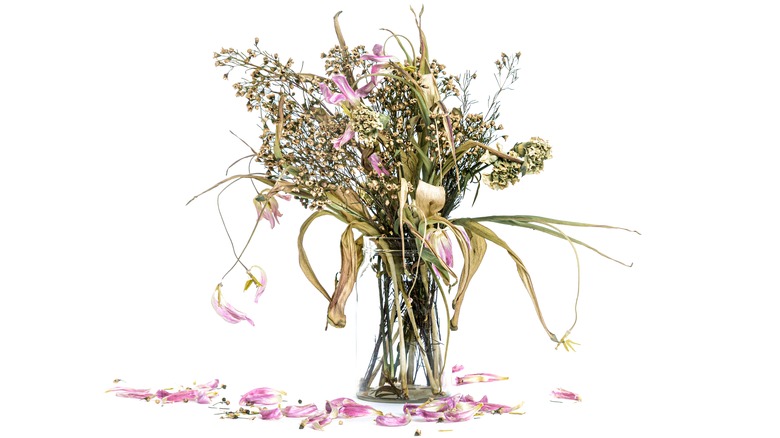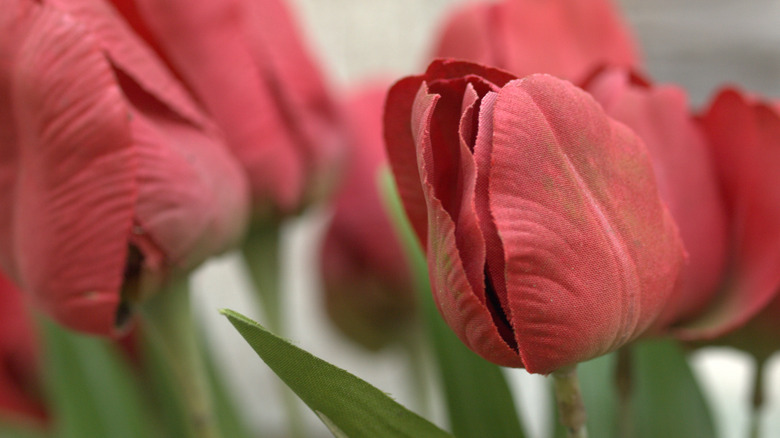Why You Should Keep Dried Or Artificial Flowers Out Of Your Home, According To Vastu Shastra
Vastu shastra, as defined by Dr. Smita Narang, is the ancient Vedic practice of balancing architectural design with the five elements of nature — earth, water, air, fire, and space — to create the best possible energy flow. Considered a science of the Vedas and a science of design theory, this method of arranging building structures to create harmony within homes and workspaces takes into account details such as the magnetic fields of the Earth and the processes used during construction. Though it may sound similar to feng shui, vastu shastra is distinctly its own and, by some accounts, is believed to have laid the groundwork for the Chinese practice, pre-dating feng shui by thousands of years (via Dalalba).
Generally speaking, vastu shastra principles should be consulted before a home is even built, but that doesn't mean they can't still be implemented in an existing structure. Along with the five natural elements, orientation of the eight directions factor into the equation, as do the types of decorative items brought into a space.
Dried flowers in the house bring negative energy
The primary purpose of incorporating vastu shastra methods in your home is to improve balance and flow. To that effect, dead or intentionally dried flowers are thought to be inauspicious disruptors of harmony, explains India TV. Whereas fresh-cut flowers are often arranged and kept indoors in order to increase positive energy and the moods of all who encounter them, as they wilt and inevitably die, that energy changes dramatically. It's not simply that the positive energy is no longer there; the problem becomes the dead bouquet's potential to now attract negative energy.
To take things a step further, in some Indian cultures, dried flowers are compared to dead bodies, which should be removed from the house (via India TV). Potpourri is included in the mix as well. Instead of a cozy way to bring a calming scent to the home, a bowl of dried flower petals is considered poison, per vastu shastra principles. Therefore, it's better to turn them into an offering to god for immediate purification.
Some of the implications of dead or dried flowers in the home may feel a bit extreme — especially when you think of bouquets that are kept as mementos of important life events — yet it does make sense that the appearance of wilted and decaying flora has the ability to bring down the energy of a room, making it feel like a cluttered mess.
Artificial flowers are better but not great
A costly or potentially allergenic bouquet of fresh-cut flowers isn't always a practical addition to the dining room table, unless you have the ones you're not allergic to growing in your yard. So, you still may be hoping for a way to flaunt a floral arrangement in your home. According to the science of vastu shastra, artificial flowers are a definite step up from dried flowers, but they're far from perfect. Vastu shastra consultant Pallavi Chhelavda points out that plastic plants are obviously lifeless and just as capable of attracting energy as dead flowers, per Vastu Shows.
On the flip side, Kalam Times asserts that it's OK to display artificial flowers indoors as long as you follow a few specific rules. Include them in your cleaning routine so they don't get dusty or dingy. Be intentional about placing them in the western or eastern directions of the house, and keep fake ornamental plants off of stairs where they would get in the way of a person's progress and motion. Finally, even if they're artificial, steer clear of thorns.


